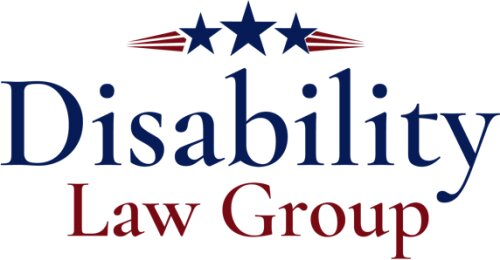Best Restructuring & Insolvency Lawyers in West Virginia
Share your needs with us, get contacted by law firms.
Free. Takes 2 min.
Or refine your search by selecting a city:
List of the best lawyers in West Virginia, United States
About Restructuring & Insolvency Law in West Virginia, United States
Restructuring and insolvency law in West Virginia focuses on helping individuals, businesses, and other entities manage financial hardship that could lead to bankruptcy, liquidation, or reorganization. This legal area covers processes and rules for negotiating with creditors, restructuring debts, filing for bankruptcy under federal or state law, and ensuring the fair treatment of all parties involved. West Virginia's legal framework is designed to provide both debtors and creditors with orderly paths for resolving financial distress while maintaining economic stability in the state.
Why You May Need a Lawyer
There are many scenarios where the advice and representation of a restructuring and insolvency lawyer are essential. Common situations include:
- Facing overwhelming personal or business debt
- Receiving creditor lawsuits, foreclosure notices, or wage garnishment threats
- Considering filing for bankruptcy or negotiating repayment terms
- Dealing with business insolvency, including potential liquidation or restructuring
- Understanding your rights and obligations in bankruptcy proceedings
- Protecting assets and ensuring compliance with court mandates
- Managing disputes between creditors and debtors
- Advising local businesses on accessing protections under the bankruptcy code
A qualified lawyer can help you navigate complex paperwork, court procedures, negotiations, and local requirements to achieve the best possible outcome for your situation.
Local Laws Overview
Restructuring and insolvency matters in West Virginia are primarily governed by federal bankruptcy laws, particularly Chapters 7, 11, and 13 of the United States Bankruptcy Code. However, state-specific rules and procedures also play a crucial role. Here are some key aspects relevant to individuals and businesses in West Virginia:
- Exemptions: West Virginia law outlines specific assets that are exempt from creditors' claims in bankruptcy, such as certain amounts of equity in a home, vehicles, and personal property.
- State Court Proceedings: In some cases, insolvency issues or debt disputes are handled within state courts, for example, through foreclosure or collection actions.
- Small Business Provisions: Small businesses may qualify for streamlined processes under Chapter 11 Subchapter V, which is also available in West Virginia federal courts.
- Foreclosure Laws: West Virginia utilizes non-judicial foreclosure, meaning lenders can foreclose without going to court, but must follow precise notice and procedure rules.
- Creditor Rights: Creditors have specific rights and remedies under both state and federal law, but must comply with all notice and procedure requirements.
Understanding how these local and federal laws interact is critical to protecting your interests if you find yourself or your business in financial distress.
Frequently Asked Questions
What are the most common types of bankruptcy filed in West Virginia?
The most common types are Chapter 7 (liquidation) for individuals, Chapter 13 (reorganization for individuals with regular income), and Chapter 11 (reorganization, typically for businesses but sometimes individuals with large debts).
Will I lose my home or car if I file for bankruptcy in West Virginia?
Not necessarily. West Virginia allows you to claim certain exemptions to protect equity in your home, car, and other personal property. The specifics depend on the exemption amounts and your unique situation.
How long does the bankruptcy process usually take?
Chapter 7 typically takes three to six months. Chapter 13 repayment plans last three to five years. Chapter 11 can vary widely depending on the size and complexity of the case.
Can I stop creditor harassment or foreclosure by filing for bankruptcy?
Yes. Filing a bankruptcy petition invokes an automatic stay, which immediately stops most collection actions, lawsuits, garnishments, and foreclosure proceedings.
What is the difference between liquidation and reorganization?
Liquidation (typically Chapter 7) involves selling non-exempt assets to pay creditors. Reorganization (such as Chapter 13 or 11) allows debtors to restructure debt and repay creditors over time, often without liquidating all assets.
Is it possible to negotiate with creditors outside of bankruptcy?
Yes. Restructuring can involve negotiating modified payment terms or settlements outside of court. This can be done informally or through structured state and federal processes.
What debts cannot be discharged in bankruptcy?
Common non-dischargeable debts include most taxes, child support, alimony, certain student loans, and debts arising from fraud or certain court judgments.
Do I have to appear in court if I file for bankruptcy?
You will usually need to attend a meeting of creditors, also known as a 341 meeting. Most cases require minimal or no additional court appearances unless disputes arise.
Are business owners personally liable for business debts in bankruptcy?
It depends on your business structure. Sole proprietors are personally liable. Limited liability company (LLC) members or corporate shareholders may have limited liability, but guarantees or personal loans can expose personal assets.
How can a West Virginia restructuring and insolvency lawyer help me?
A lawyer can review your finances, explain your options, protect your rights during proceedings, negotiate with creditors, complete filings, and represent you in court. Their guidance is crucial to navigating legal complexities and maximizing your protection.
Additional Resources
If you are in need of more information or assistance, these resources may be helpful:
- United States Bankruptcy Court for the Southern District of West Virginia
- United States Bankruptcy Court for the Northern District of West Virginia
- West Virginia State Bar - Lawyer Referral Service
- Legal Aid of West Virginia - Provides legal information and some representation for low-income individuals
- West Virginia Attorney General's Consumer Protection Division
- Small Business Administration (SBA) - Guidance for struggling business owners
Next Steps
If you are facing financial distress or are considering restructuring or bankruptcy, the first step is to gather your financial information and determine your goals. Reach out to a qualified restructuring and insolvency lawyer in West Virginia for a case evaluation. Be prepared to discuss your debts, assets, income, and any legal notices you have received. An experienced attorney will explain your options, help you understand the likely outcomes, and guide you through the legal process with confidence. Early action is key to maximizing your protections and opportunities for recovery.
Lawzana helps you find the best lawyers and law firms in West Virginia through a curated and pre-screened list of qualified legal professionals. Our platform offers rankings and detailed profiles of attorneys and law firms, allowing you to compare based on practice areas, including Restructuring & Insolvency, experience, and client feedback.
Each profile includes a description of the firm's areas of practice, client reviews, team members and partners, year of establishment, spoken languages, office locations, contact information, social media presence, and any published articles or resources. Most firms on our platform speak English and are experienced in both local and international legal matters.
Get a quote from top-rated law firms in West Virginia, United States — quickly, securely, and without unnecessary hassle.
Disclaimer:
The information provided on this page is for general informational purposes only and does not constitute legal advice. While we strive to ensure the accuracy and relevance of the content, legal information may change over time, and interpretations of the law can vary. You should always consult with a qualified legal professional for advice specific to your situation.
We disclaim all liability for actions taken or not taken based on the content of this page. If you believe any information is incorrect or outdated, please contact us, and we will review and update it where appropriate.
Browse restructuring & insolvency law firms by city in West Virginia
Refine your search by selecting a city.










